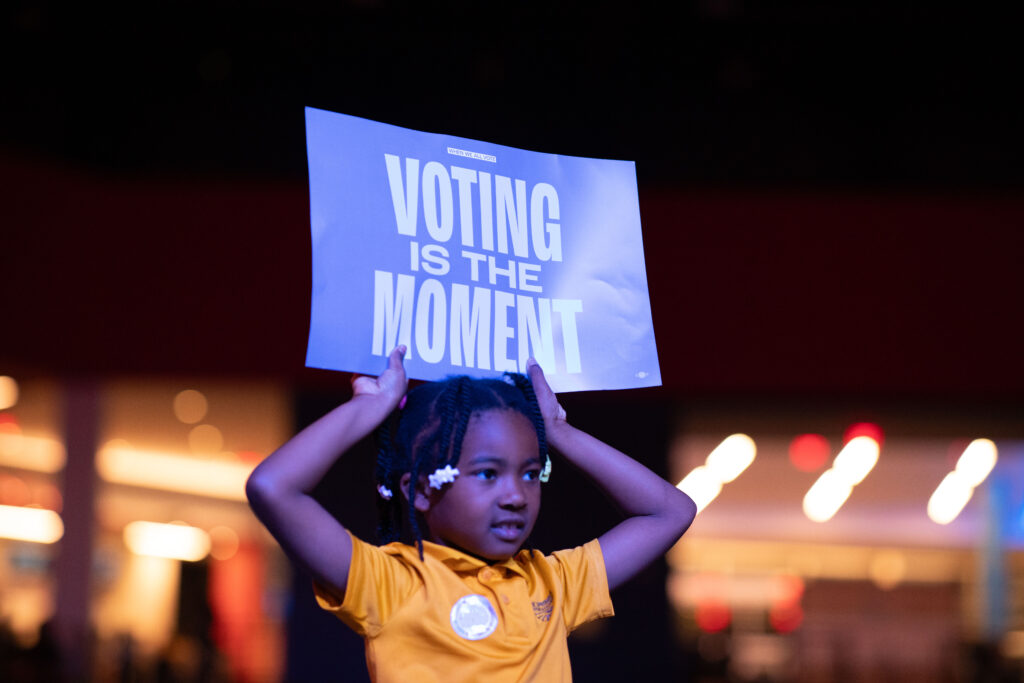How The 2024 Presidential Election Is Impacting Mental Health: Managing Anxiety And Political Stress

Photo by Alex Green
The 2024 U.S. Presidential Election has sparked continued mental health conversations as disappointment and anxiety have been displayed on social media since Donald J. Trump was announced as President-elect. While Trump won the race with 277 Electoral College votes, more than 66 million people still voted for Harris – just 4.8 million less than Trump as of Nov. 6. For battleground states like North Carolina in particular, the margin was even closer, separating the two by less than 200,000 votes. The shock has led many to showcase their emotions across social media, especially those from minority and typically underrepresented populations.
“It’s easy to have anxiety following a presidential election, especially when there is a significant change of power or the wining candidate has said or done deeply triggering things,” said Veronda Bellamy, founder of the Relevancy Factor and Happyology. “Particularly for the Black, feminist, immigrant and LGBTQIA communities, post-election can be a highly challenging time because they are wondering how this will affect their lives long-term. They are also wondering why friends and family would vote against their interests, which makes it personal.”
A study conducted during the 2020 U.S. Presidential Election by the American Psychological Association and Harris Poll revealed that 68% of American Adults said that U.S. presidential election was a “significant source of stress in their life.” With the 2024 Presidential Election being what many have called “the most important election in our lifetime,” anxiety is even higher.
Now that the election is over, Bellamy is urging Americans to be mindful of political anxiety and managing screen time may also help manage anxiety, particularly as demeaning, anonymous texts are being sent to Black Americans and going viral on social media.
“With such harmful rhetoric online, now is a good time to unplug and focus on your mental health. We must protect our peace,” Bellamy adds. “It’s also natural to feel let down, disappointed and frustrated with feeling like progress hasn’t been made or that issues you care about passionately are not shared by others like friends, family and colleagues.”
Bellamy warns that avoiding political conversations in the immediate aftermath of the election can also help to salvage relationships. “Tensions are high right now and likely will be through the inauguration for both sides of the fence. It’s important to take a step back and process the information instead of getting in the immediate emotions.”
There are also others that empathize with the groups who are feeling unheard in the election results. “While it may be your first inclination to reach out to friends who are minorities, give it a pause and allow them to continue processing their feelings,” she adds. “Results of elections affects people in different ways, they may feel more annoyed or emotional because of your immediate outreach, so I recommend giving them time to process their feelings first, no matter how well-meaning.”
The therapist notes that perhaps the words of Vice President Kamala Harris are some of the most comforting, as the former Democratic nominee said in her concession speech, “To the young people who are watching, it is okay to feel sad and disappointed, but please know it’s going to be okay,” she said. “On the campaign, I would often say, when we fight, we win. But here’s the thing…sometimes the fight takes a while. That doesn’t mean we won’t win…Don’t ever stop trying to make the world a better place.”
ABOUT VERONDA BELLAMY: Veronda Bellamy is a state-licensed therapist and nationally certified counselor with an extensive background in corporate America. Combining her background in business with her passion for mindset coaching, she has found a way to provide unparalleled guidance for all of her clients via the Relevancy Factor and Happyology, all of which are part of Veronda Bellamy Enterprises.




